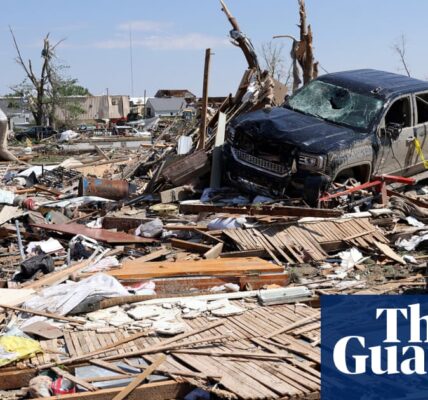An expert predicts that there will be an exceptional amount of coral bleaching in 2024.

A coral expert predicts that the current climate crisis will result in extremely high temperatures on land and in the sea, leading to an unprecedented amount of coral bleaching and death by the year 2024.
According to Professor Ove Hoegh-Guldberg from the University of Queensland in Australia, the effects of climate change on coral reefs have now entered unexplored territory. This has raised concerns that we may be approaching a critical turning point.
The surface of the ocean has experienced unprecedented changes in its conditions, ecosystems, and communities, which can be linked to the 1980s when coral bleaching became widespread. According to a recent study published in the journal Science, scientists from the US and Australia have found evidence that the current extreme heatwaves in the ocean may be a warning sign of a future mass bleaching and coral death event in the Indo-Pacific region in 2024-25.
Mass coral bleaching occurs when fragile corals are under stress from various factors, such as heat, resulting in the loss of their brown microbial algae and causing them to turn white. When stress levels are low, the algae can typically return to the corals within a few months. However, in recent years, Caribbean reef areas have faced exceptionally high sea temperatures that started earlier and lasted longer than usual, leading to significant damage.
In 2023, there is a possibility of two consecutive years of El Niño, with the highest recorded average global surface sea temperature from February to July. This pattern has been observed since 1997, with each occurrence resulting in a widespread coral bleaching event.
Hoegh-Guldberg, whose work has helped to shape the world’s understanding of the risks to the ocean’s richest ecosystems, said: “The probability is that somewhere in the next 12 to 24 months, we are going see El Niño combine with warming sea temperatures and have a really big impact.
We are currently in unfamiliar territory that we have limited knowledge about and are unsure how to handle. This situation is potentially risky for us.
The scientist, who is currently attending the Cop28 climate summit in Dubai, expressed uncertainty about the consequences of such a significant rise in temperature. He warned that we may experience even more severe storms than those we have already witnessed, as these are the highest temperatures ever recorded on both land and sea.
Ignore the newsletter advertisement.
after newsletter promotion
According to Hoegh-Guldberg, there is concern that the extreme heat experienced during the summer months may be reaching a critical point that cannot be reversed. The consequences of such a sudden rise in temperature are still unknown.
The speaker warned that unless greenhouse gas emissions decrease, the coral bleaching and mortality incidents in the Indo-Pacific could have lasting negative effects on both ecosystems and the millions of people who rely on them in the tropical regions of the Earth.
The minuscule brown algae residing in coral are highly affected by fluctuations in temperature. Similar to humans, there is an optimal temperature that they can tolerate. However, just a couple degrees above that and they will not survive. This has significant implications on a global level and is quite alarming.
In July 2023, the Earth had its highest temperature since 1910 and recorded the warmest month for sea temperatures.
According to Hoegh-Guldberg, there is a significant correlation between the energy present in the system and the severity of storms and their effects on living organisms. This relationship has been extensively researched and proven over the course of 40 years.
According to the researchers, as coral reefs become bleached and perish, the environments that support numerous associated species of reef are lost, resulting in the breakdown of the ecosystem. This could potentially harm up to 25% of marine biodiversity.
He encouraged decision-makers and global leaders to take prompt and resolute action in reducing greenhouse gas emissions, emphasizing the importance of relying on scientific evidence.
According to Hoegh-Guldberg, this is an engineering challenge rooted in science. We must establish the guidelines and understand the functioning of our planet in a timely manner. With the resources at our disposal, we have the ability to tackle this problem. However, it is crucial to approach it intelligently and involve all parties. Our goal should be to implement a system that can temporarily cool the planet or at least prevent further warming.
Source: theguardian.com



